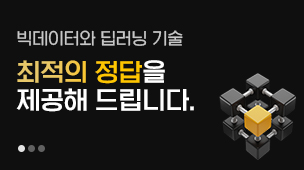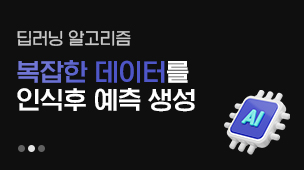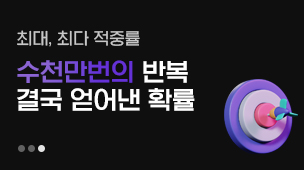20 Trailblazers Are Leading The Way In Alternative Depression Treatmen…
페이지 정보

본문
 Alternative Depression Treatments
Alternative Depression TreatmentsMany people are frustrated that the standard treatment for depression, which includes psychotherapy and antidepressants, does not work or can cause unwanted side negative effects. There are alternative treatments for depression that have been proven efficient.
These techniques include cognitive behavior therapy (CBT) as well as meditation, acupuncture, and light therapy. These treatments can be used in conjunction with psychotherapy or medication.
Yoga
Yoga is a physical activity that involves specific body postures and breathing exercises. It can be calming and challenging, depending on the style of yoga that is being practiced. It can also help people concentrate and become more mindful of their emotions. This is an important aspect of yoga because mindfulness has been linked to reducing depression pharmacological treatment symptoms.
A study published in Procedia – Social and Behavioral Sciences showed that people suffering from depression experienced a reduction in their symptoms when they engaged in yoga. The researchers suggested that yoga be considered in the treatment of depression. It could be a beneficial treatment for those receiving other types treatment.
Although antidepressants can be a successful treatment for depression, many people don't want to depend only on medications. However, if you're struggling with depression that is mild medication can make a huge difference in your life. It can improve your mood and allow you to enjoy other activities, such as exercise.
However, you should always consult your physician before considering any alternative treatments for depression, such as dietary supplements or meditation. They may not be appropriate for everyone, and they may interact with your medication.
Yoga is a great way to get some exercise and also to meditate. It's also a great method to unwind and concentrate on your breathing, which is essential for mental well-being. Yoga can also reduce stress and boost serotonin levels, a natural hormone that fights depression. It can also aid in a better sleep which is a common problem for people who suffer from depression. It is a great alternative to other treatments like cognitive behavioral therapy or psychotherapy.
Meditation
Meditation is a relaxing and mindful activity that can help ease the negative feelings associated with depression. A variety of different forms of meditation are available, including breathing exercises, yoga, body scan meditation, visualizing pleasant images and Love-kindness meditation (wishing well to yourself and others). Choose a form of meditation that works for you and try it every day for at least 10 minutes.
An increasing evidence base supports the use of meditation as a substitute for traditional treatments, like antidepressants and talk therapy. The research is still in its infancy and more research needs to be conducted. In one study, a team of researchers found that meditative techniques like mindfulness-based cognitive therapy (MBCT) lower the risk of relapse in patients with major depression who are also taking antidepressants.
 This is due to the fact that MBCT can help to break the feedback loop that connects the brain regions responsible for feeling anxious or stressed. These positive effects can also be enhanced by combing meditation with other types of treatment, including cognitive behavioral therapy.
This is due to the fact that MBCT can help to break the feedback loop that connects the brain regions responsible for feeling anxious or stressed. These positive effects can also be enhanced by combing meditation with other types of treatment, including cognitive behavioral therapy.Other alternatives to treatment for depression include transcranial magnet stimulation, magnetic e-resonance therapy Spravato and lifestyle changes. These methods are typically accompanied by a therapist and can be used in conjunction with conventional methods of treatment for depression.
Meditation is a proven alternative treatment for depression, however it could take a while before you can see any tangible positive effects. Just be patient and stick to it; it will improve your mood over time provided you practice regularly. It is important to incorporate meditation into techniques that address both emotional and physical aspects of your depression. For example, exercise is crucial to any non drug treatment for depression for depression since it eases anxiety and boosts levels of endorphins.
Reflexology
In this alternative treatment for depression practitioners apply pressure to specific points on the feet and hands. Reflexologists utilize maps of body parts that correspond to pressure points on the feet, hands and ears to determine where to put their thumbs or fingers. They believe that a gentle touch can transmit energy through the body to the area that needs healing. This pseudoscientific method is based on ancient Chinese beliefs about qi or vital energy. Marco Polo brought Chinese texts that described reflexology into Europe in the 1300s.
Ingegno believes that reflexology could help with a variety of health issues, including relief from stress and pain. In addition, she claims it can aid digestion and help promote relaxation. However, she cautions that more research is required to prove these assertions. Ingegno suggests anyone considering this therapy to avoid taking cigarettes or drinking alcohol prior to and after the session. Alcohol can cause diuretic effects and can hinder the benefits of treatment. Smoking cigarettes can affect your judgment and cause sleepiness.
Complementary and alternative therapies, like yoga, meditation, or exercise can aid in managing depression symptoms and reduce the need for medication. However, these treatments should not be a replacement for talk therapy and other conventional treatments, like antidepressant medication or ECT. Consult your physician about herbs and supplements before you try them, as some may interfere with other medication.
Other alternative treatments include Spravato and magnetic resonance therapy and acupuncture. These treatments aren't widely accessible and require an extensive commitment from the patient. If you are suffering from depression that is severe, you should consider seeking psychiatric services in the hospital. This could involve the possibility of a partial hospitalization or a day treatment programs.
Massage
Although research on the effectiveness of massage therapy in treating depression isn't extensive, it does show potential. Certain studies have proven that massage reduces anxiety and depression symptoms. More rigorous studies are required.
Massage can increase serotonin levels. This is a natural mood booster. It also decreases cortisol which is the stress hormone. In addition, it promotes an overall relaxation response in the body. The relaxation response slows down the breathing rate and heart rate, lowers blood pressure, and decreases the production of stress hormones. This can relieve depression and insomnia, as well as pain.
Many people who suffer from anxiety or depression have a physical issue, such an illness that has a long-term effect. Therefore, it's important for massage therapists to be networked with other professionals who can treat these ailments and refer clients to additional treatment options.
Alternative treatments for depression include herbal, acupuncture and light therapy. These treatments can be paired with other conventional therapies like psychotherapy and medication. Certain herbs are antidepressant in nature. However, you should always consult your physician prior to taking any herbal supplement.
In one study, a massage therapy program was provided to women who were experiencing prenatal depression. The women received a treatment that included massage therapy and Acupuncture to combat depression. The results of the study proved that women who received regular massage experienced less severe depression symptoms than those who didn't receive massage.
While there is still some uncertainty regarding the precise mechanism behind why massage so effective, it seems to stimulate brain circuits associated with enjoyment and connection. It is also thought to reduce hypothalamic-pituitary-adrenal activity, decrease stress hormones, and increase parasympathetic tone.
Deep Breathing
In calming your nervous system through deep breathing is an alternative treatment for depression. Deep breathing can be utilized as a technique for meditation or when you feel anxious. This technique can be utilized in conjunction with other treatments like reflexology, yoga, or light therapy. During this exercise, you breathe longer, deeper breaths from your abdomen instead of your chest to counteract shallow, rapid breathing that occurs when you are stressed or anxious.
Deep breathing can help you relax as it increases your oxygen levels. It also relaxes your body. It can also lower your heart rate and blood pressure. It is recommended that you do it daily to maintain optimal health. You can practice this exercise at home or with a professional instructor. Deep breathing can be incorporated into mindfulness techniques, which are a form of meditation that requires focusing on your surroundings and paying attention to how depression is treated you're feeling without judging it whether it's good or not.
Aside from traditional antidepressants, there are several alternative treatments for depression that have been proven to be effective. Reestablishing social bonds meditation, exercise, and herbal supplements are a few of the methods that have been proven to be efficient. However, some of these aren't appropriate for everyone and should be used under the supervision by a qualified medical professional.
Psychotherapy, or talk therapy is another alternative depression treatment option that could be beneficial for you. This type of biological treatment for depression, regardless of whether you choose individual therapy or group therapy with at least two people or with a family, will teach you how to better manage your depression. Psychotherapy can also aid you in understanding the root causes of your depression and assist you in finding ways to avoid it in the future.
- 이전글Best Robot Vacuum For Pet Hair Self Emptying Tools To Make Your Daily Life Best Robot Vacuum For Pet Hair Self Emptying Trick Every Individual Should Be Able To 24.09.05
- 다음글купить мицубиси паджеро в астане - купить мицубиси паджеро в казахстане 24.09.05
댓글목록
등록된 댓글이 없습니다.





 스포츠토토 유용한 정보
스포츠토토 유용한 정보  가상경기 배팅게임
가상경기 배팅게임 